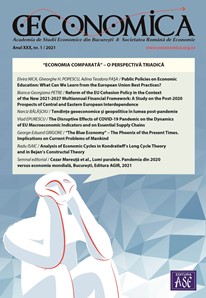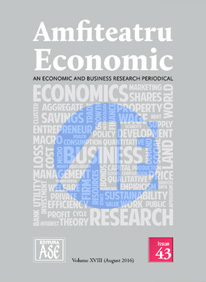
The Astana Process - Problems and Prospects
In late 2016, the heads of Russia and Turkey proposed to hold talks in Astana. The President of Kazakhstan, Nursultan Nazarbayev, during the telephone talks with Vladimir Putin and Recep Tayyip Erdogan supported this initiative and expressed readiness to provide a platform for such talks.
For the first time in the 6-year history of the civil war in Syria, representatives of the incumbent Syrian Government and the armed opposition directly involved in military operations met at the same table. The breakthrough became possible due to the involvement of Russia, Turkey and Iran in the preparation and organization of negotiations.
Key facts
In the negotiation process, 15 insurgent groups numbering from 1,000 to 20,000 people were involved[1]. The separation of moderate opposition groups from terrorist organizations operating in Syria also began.
Both the opposition and the government delegation were not ready for a direct dialogue. In addition, the list of participants from the opposition in the Astana talks clearly lacked representatives of a number of major opposition groups.
The breakthrough became possible due to the involvement of Russia, Turkey and Iran in the preparation and organization of negotiations.
The question of the participation of Western partners in the January talks was considered separately by the organizers of the Astana process. In particular, a request was sent to the US side for the participation of US representatives in the upcoming consultations. However, the degree of involvement in the negotiations of such a significant player in the Syrian issue, like the US, was limited to the presence at the Astana meeting of the US Ambassador to Kazakhstan, George Krol[2].
The united opposition was headed by Mohammed Allush, head of the Supreme Committee for the negotiations and leader of the combat group "Jays al-Islam"[3].
The Syrian government delegation was led by Syria's permanent representative to the UN, Bashar Jaafari, who noted Iran's important role in the negotiation process as a coordinating link[4].
Russia, Iran and Turkey were represented by the foreign ministers of these countries: Sergei Lavrov, Mohammad Javad Zarif and Mevlut Cavusoglu[5].
Representatives of the Syrian opposition passed their demands only to Moscow and Ankara, ignoring Tehran.
Representatives of the Syrian opposition passed their demands only to Moscow and Ankara, ignoring Tehran. Representatives of the Damascus Government refused to accept these conditions. A joint communique was never signed. Nevertheless, Moscow, Tehran and Ankara issued a joint statement in which they expressed their commitment to the principles of the sovereignty and territorial integrity of Syria and stipulated the impossibility of a military solution of the conflict.
Mixed results
The final document was read by the Minister of Foreign Affairs of Kazakhstan, Kairat Abdrakhmanov[6]. The document stresses that the international meeting on Syria in Astana is an effective form for direct dialogue between the government and the opposition.
The Russian side conveyed to the representatives of the armed Syrian opposition the draft of the proposed future constitution of Syria, which envisages the following changes:
· Renaming the Syrian Arab Republic to the Syrian Republic;
· Carrying out the process of decentralization of state power on the basis of the principles of national-ethnic federalism according to the model of "zones of association";
· Strengthening the legislative role of parliament as opposed to the constitutional functions of the president. Implementation of the concept of secularism with the gradual weakening of Islamist law as a source of legitimacy[7].
The document stresses that the international meeting on Syria in Astana is an effective form for direct dialogue between the government and the opposition.
The Minister of Foreign Affairs of the Republic of Kazakhstan Kairat Abdrakhmanov gave voice to a joint statement of Iran, Russia and Turkey on the results of the 5th round on Syria in Astana.After this meeting, several more rounds of talks were held in Astana. They were very important. So on the 4th of May, 2017, the Memorandum on the creation of zones of de-escalation in Syria was signed. The 5th round was held on the 4th-5th of July 2017.
He said that the negotiators welcome a significant reduction of the level of violence in Syria, and also call on the parties to observe the ceasefire and stop all violations[8]. Abdrakhmanov added[9] that:
"They welcome the establishment of a joint working group on de-escalation in accordance with the provisions of the memorandum and adopted the provision of this memorandum, express their satisfaction with the progress in determining the boundaries of de-escalation zones and instructed the joint working group to finalize all operational and technical conditions of all de-escalation zones".
The Head of the Kazakhstani MFA also added[10]:
"They emphasize the need for all parties in Syria to take confidence-building measures to ensure the viability of the political process and a long-lasting ceasefire, stressing the need for rapid, safe and unhindered humanitarian access to the zones affected by the conflict and recall this in connection with the relevant Provisions of the memorandum”.
To the drawing board
After the 5th round of the talks, an important statement was made by the leader of the "Platform Astana" - Randa Kassis, who is leading a group of the Syrian opposition.
She said that the "platform Astana" of the Syrian opposition intends to prepare its own version of the future constitution of Syria by autumn this year and submit it to the UN Security Council[11].
“We will have a draft constitution in September or October. I know how to make it work for both the opposition and the regime (President Bashar Assad). The Constitution will ensure the federalization and decentralization of Syria. At the same time, it will give power to the president, the parliament and the army”.
The “platform Astana" has already held a series of negotiations on constitutional issues during the 7th round of the Geneva talks. Discussions are held in parallel with meetings between representatives of the United Nations, the government of Syria and the opposition in Geneva. As Randa Kassis added[12]:
“When the constitution is ready, we will present it to the Syrian people for its support, as well as for Russia, and then I will lobby for it in France, as well as enlist the support of the United States and China and all the permanent member states of the UN Security Council. It will be the first step in the political process”.
The statement of Iranian Foreign Minister Javad Zarif is very important[13]:
“The Astana process is still the only one that brings results. This must be given due, considering the tragic situation in the region, where conflicts and bloodshed continue […] We are sure that Iran, Russia and Turkey must continue to work to strengthen the Astana process, contributing to international efforts whose goal is to bring peace and stability to Syria and to seize all parties at the negotiating table”.
As the Kazakhstani political scientist Marat Shibutov points out, negotiations for a settlement in Syria are actually not so much about Syria itself, as about the future configuration of the Middle East as a whole.
According to Javad Zarif, thanks to the Astana process, many things have already been done to stabilize and improve the situation in Syria. "We need to consolidate these results by creating conditions for the work of observers, the provision of humanitarian assistance, as well as participating in the political process," the minister added[14].
Conclusion
It can be said that the past rounds of negotiations led to a dialogue between the Syrian authorities and a significant part of the opposition, which constitutes important progress.
In general, as the Kazakhstani political scientist Marat Shibutov points out, negotiations for a settlement in Syria are actually not so much about Syria itself, as about the future configuration of the Middle East as a whole. The region is very important because it is close to Europe, there is a significant population and population growth, there are sacred places of the Abrahamic religions and significant reserves of oil and gas. That is why there are so many sides of the conflict, and far from all of them are located in this region – but even those beyond the Syrian borders find ways of projecting themselves inside it[15].
The conflict itself is also a challenge for negotiations.
The conflict itself is also a challenge for negotiations. Firstly, it is very large (millions of refugees, half a million dead). Secondly, there is a split along ethnic, tribal and religious lines, but without clear-cut geographic borders to minimize contact points where frictions take place, greatly exacerbating the problem. Thirdly, sabotage is often used against enemy commanders, which creates difficulties when the people who ordered the killing of each other have to sit down at the negotiating table[16].
In conclusion, it can be noted that the Astana negotiating process will continue, because the guarantor countries and the government of Syria are at least interested in it. As to the ultimate result, it is shrouded in uncertainty by depending on all the parties involved in the conflict, directly or peripherally.
[1]http://enw-fond.ru/ekspertnoe-mnenie/4982-lidiya-parhomchik-timofeenko-prineset-li-astana-mir-v-siriyu.html
[2]http://eurasia.expert/authors/lidiia-parhomchik-timofeenko/
[3] https://ria.ru/spravka/20170503/1493513888.html
[4]https://ria.ru/spravka/20170503/1493513888.html
[5] Ibid
[6]https://amp.newsru.com/world/24jan2017/astanaitog.html
[7]https://amp.newsru.com/world/24jan2017/astanaitog.html
[8]http://today.kz/news/kazahstan/2017-07-05/745705-oglasheno-sovmestnoe-zayavlenie-irana-rossii-i-turtsii-po-itogam-vstrechi-po-sirii/
[9] Ibid
[10] Ibid
[11]https://ria.ru/syria/20170714/1498521707.html
[12]https://ria.ru/syria/20170714/1498521707.html
[13]http://minval.az/news/123696114
[14] Ibid
[15]https://oko-planet.su/politik/politiklist/363743-zachem-kazahstanu-peregovory-po-sirii.html
[16] Ibid








